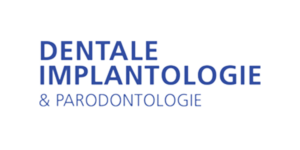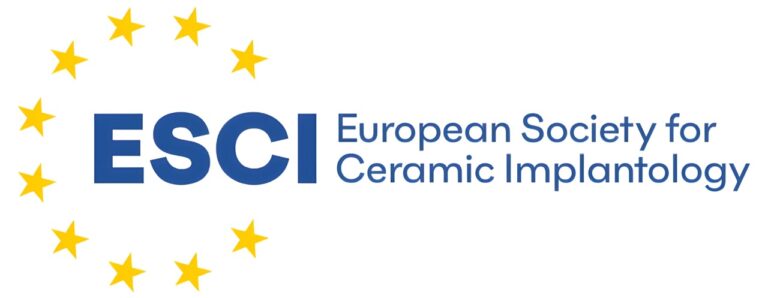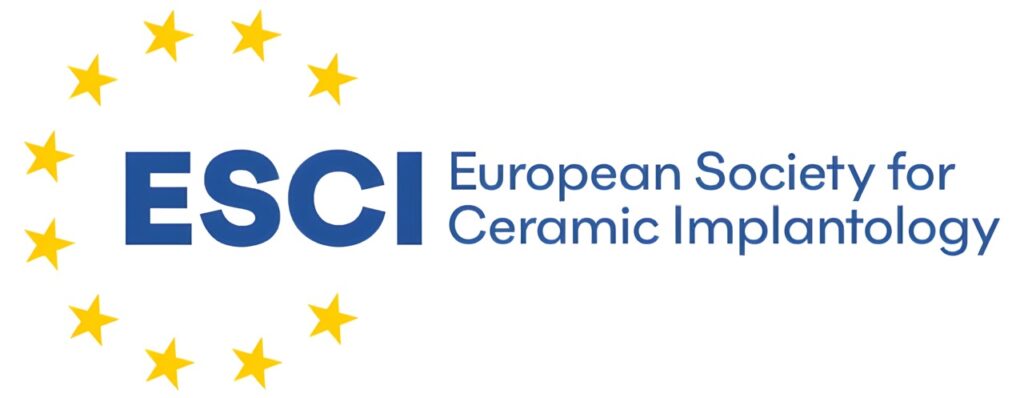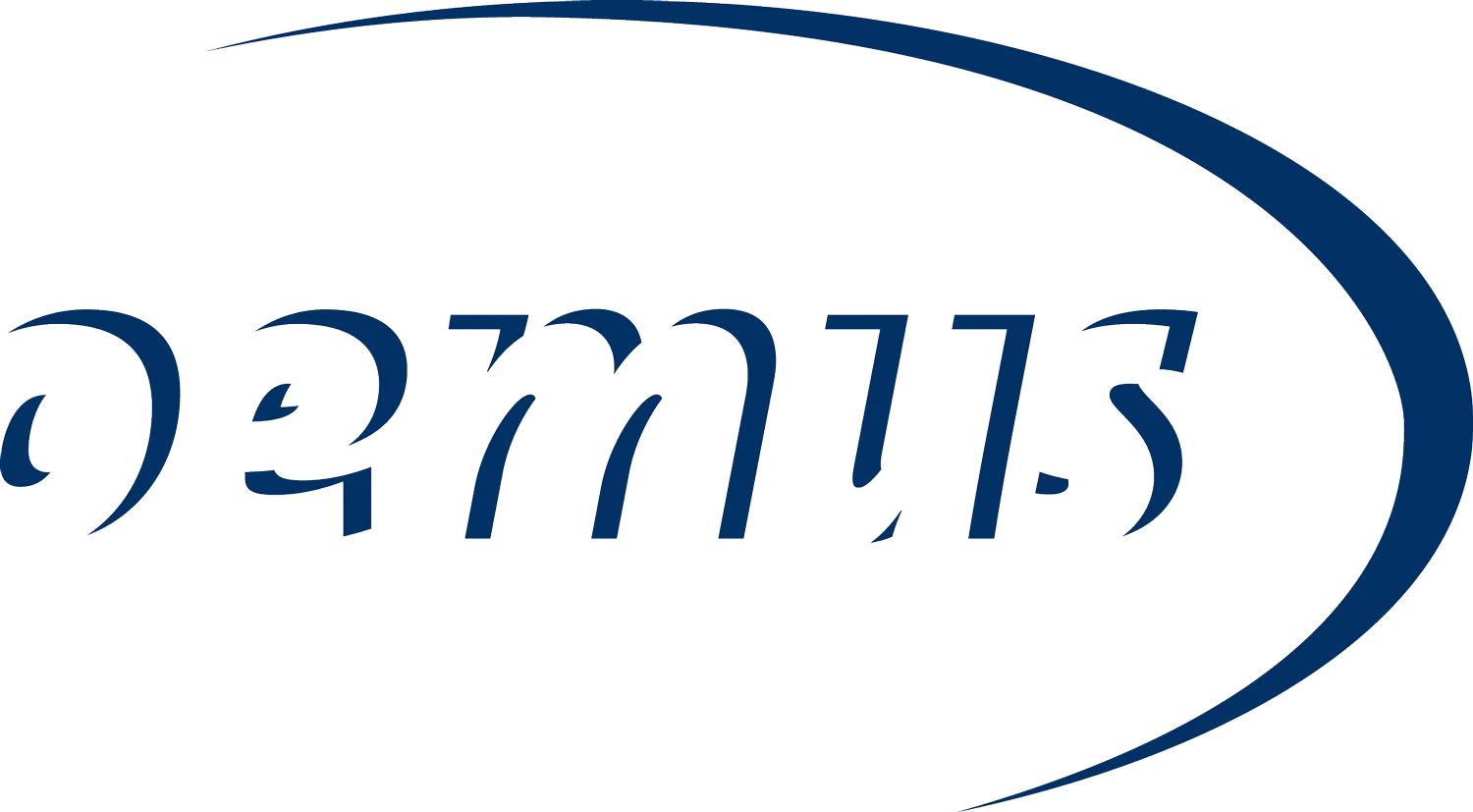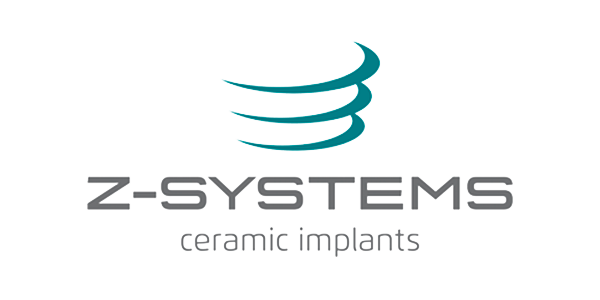
THE SCIENTIFIC COMMITTEE OF THE ESCI
European Council for ceramic implantology
Statements and council of the ESCI
As a scientific and independent medical society for ceramic implantology, the ESCI has set itself the task of drawing up official and evidence-based statements and recommendations on the subject of “ceramic implants”. These statements and consensus recommendations were developed, formulated and unanimously approved by the ESCI Board and Scientific Advisory Board. For these statements, the currently available literature was reviewed, but clinical experience was also taken into account. It objectively and independently reflects the data situation on ceramic implants.
Official statement from the European Society for Ceramic Implantology ESCI on the current supply issues affecting ceramic implants
Zurich, July 30, 2025 – The European Society for Ceramic Implantology (ESCI) notes with concern the current supply shortage of ceramic implants. This problem affects both dentists in their daily practice and patients who require zirconium dioxide implant solutions.
In recent years, demand for zirconium dioxide implants has risen significantly. More and more patients want non-metallic restorations, and numerous clinical studies now confirm the successful use of ceramic implants. The indications have been clearly defined and scientifically sound treatment guidelines have been established to ensure the necessary safety in everyday clinical practice. Ceramic implants have thus increasingly established themselves as an alternative and supplement to titanium implants in dental implantology. However, the resulting increase in demand, combined with interrupted supply chains and limited production capacities, has led to considerable supply bottlenecks in some cases.
This Statement by ESCI was formulated, confirmed and signed by the ESCI Scientific Advisory Board and ESCI Board of Directors
Prof. André Chen Prof. Jérôme Chevalier Prof. Jens Fischer Prof. Michael Gahlert Prof. Ralf Kohal Dr. Frank Maier, MSc Prof. Mutlu Özcan Prof. Michael Payer Prof. Corrado Piconi PD Dr. Stefan Röhling Dr. Jens Tartsch
Prof. Werner Zechner
Zürich, Switzerland, 13th August 2025
Statement of the ESCI 2021
“The clinical application of two-piece zirconia implants”
key points
- The two-piece zirconia implant concept offers advantages over the one-piece concept regarding prosthetic flexibility and clinical indications.
- Two-piece zirconia implants can resist clinical masticatory forces.
- Fracture resistance and mechanical stability of two-piece zirconia implants may vary as a function of different manufacturing processes, material properties, implant geometries, and prosthetic connection concepts.
- One- and two-piece zirconia implants demonstrate the same level of osseointegration and biologic integrity.
- For clinical success, each manufacturer’s guidelines regarding the strict application for the specified clinical indications should be followed for the respective two-piece zirconia implant.
- The ESCI Scientific Advisory Board states, based on the conclusions above, that the two-piece zirconia implant concept is appropriate for clinical application.
This Statement by ESCI was formulated, confirmed and signed by the ESCI Scientific Advisory Board and ESCI Board of Directors
Prof. André Chen Prof. Jérôme Chevalier Prof. Jens Fischer Prof. Michael Gahlert Prof. Ralf Kohal Dr. Frank Maier, MSc
Prof. Mutlu Özcan Prof. Michael Payer Prof. Corrado Piconi PD Dr. Stefan Röhling Dr. Jens Tartsch Prof. Werner Zechner
Zürich, Switzerland, 09th June 2021
1. Council of ESCI 2018
The 1st European Council for Ceramic Implantology of the ESCI took place on 05 Oct 2018 at the SwissRe “Centre for Global Dialogue” in Rüschlikon ZH / Switzerland. Within the framework of the 1st Council, specialists with the highest expertise in ceramic implantology met for the first time with representatives of the leading manufacturers at the “round table” to discuss scientific topics on dental implantology with ceramic implants. Present for ESCI were: Prof. Ralf Kohal (D), Prof. Michael Gahlert (D), Prof. Jerome Chevalier (FRA), Prof. Corado Piconi (ITA), Dr. Curd Bollen (NED), ESCI President Dr. Jens Tartsch (CH) and the ESCI Vice President Dr. Stefan Röhling (D). The Company Partners Straumann AG, Nobel Biocare, Camlog, Dentalpoint AG and Z-Systems AG were represented by high-ranking delegates.
For the first time, it was possible to draw up an official joint statement by science and industry on the current status of dental implantology with ceramic implants. This statement was formulated by the ESCI Scientific Advisory Board and approved by the Council and the Company Partners.
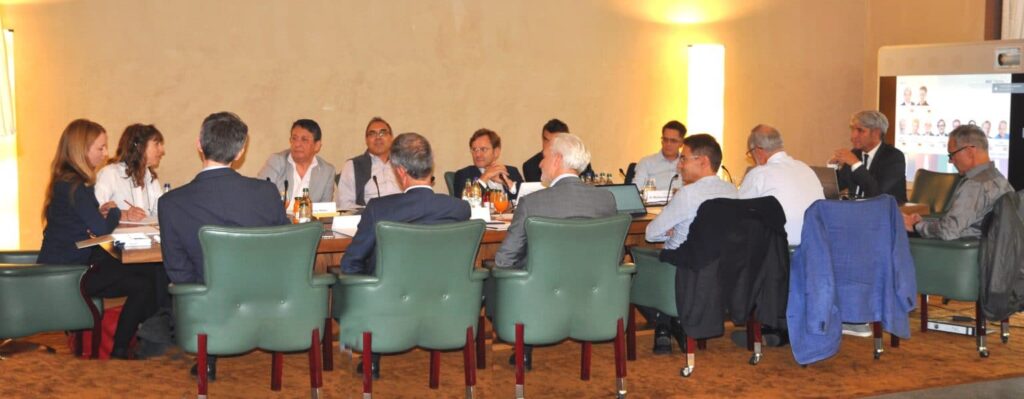
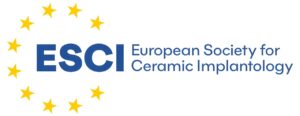
Official statement of the ESCI 1. European Council 2018
- Ceramic implants are an addition to the treatment spectrum in implant dentistry.
- They are a hot topic in implant dentistry and need a sound scientific and clinical approach.
- The request for ceramic implants is increasing.
- Micro-rough zirconia implants show similar osseointegration rates as titanium implants.
- Furthermore, clinical investigations on zirconia implants report comparable results to titanium implants up to 5 years.
- Zirconia implants are recommended for clinical use. However, long-term results are currently missing to confirm the promising short- and mid-term data.
- Optimized manufacturing processes and standardization of testing are needed.
The ESCI in the press
